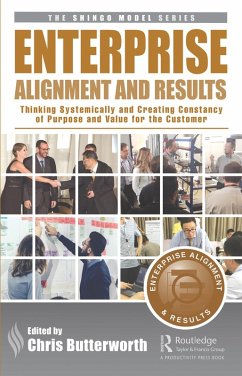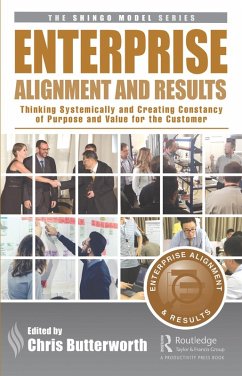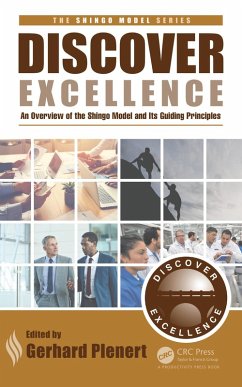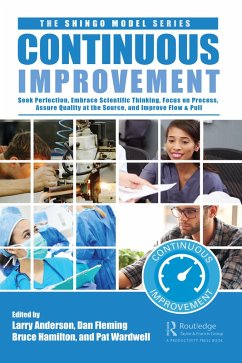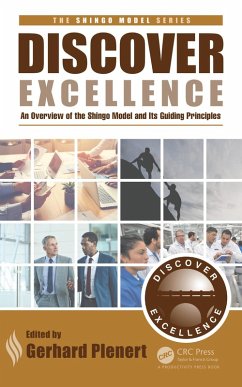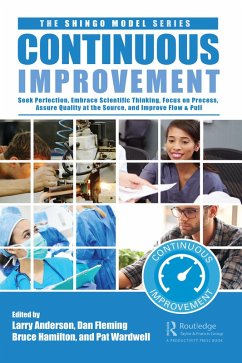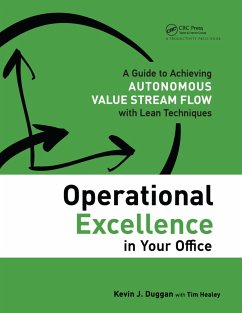
Complex Management Systems and the Shingo Model (eBook, ePUB)
Foundations of Operational Excellence and Supporting Tools
Versandkostenfrei!
Sofort per Download lieferbar
43,95 €
inkl. MwSt.
Weitere Ausgaben:

PAYBACK Punkte
22 °P sammeln!
The Shingo Enterprise Excellence Prize Model (SEEM) has exerted global influence over the ways that exceptional organizations formulate/deploy strategy with its focus on processes, Lean thinking, continuous improvement, innovation, workforce development, and supplier strategies. This book details the SEEM, which lies at the heart of the Shingo Prize. It will link the theoretical underpinnings of the SEEM and their implications for practice. Case studies illustrate important points. Selected tools that support practical implementation of the model are discussed and their use illustrated. This b...
The Shingo Enterprise Excellence Prize Model (SEEM) has exerted global influence over the ways that exceptional organizations formulate/deploy strategy with its focus on processes, Lean thinking, continuous improvement, innovation, workforce development, and supplier strategies. This book details the SEEM, which lies at the heart of the Shingo Prize. It will link the theoretical underpinnings of the SEEM and their implications for practice. Case studies illustrate important points. Selected tools that support practical implementation of the model are discussed and their use illustrated. This book will deepen understanding of why the model works and how implementation can be accomplished.
Dieser Download kann aus rechtlichen Gründen nur mit Rechnungsadresse in A, B, BG, CY, CZ, D, DK, EW, E, FIN, F, GR, HR, H, IRL, I, LT, L, LR, M, NL, PL, P, R, S, SLO, SK ausgeliefert werden.





